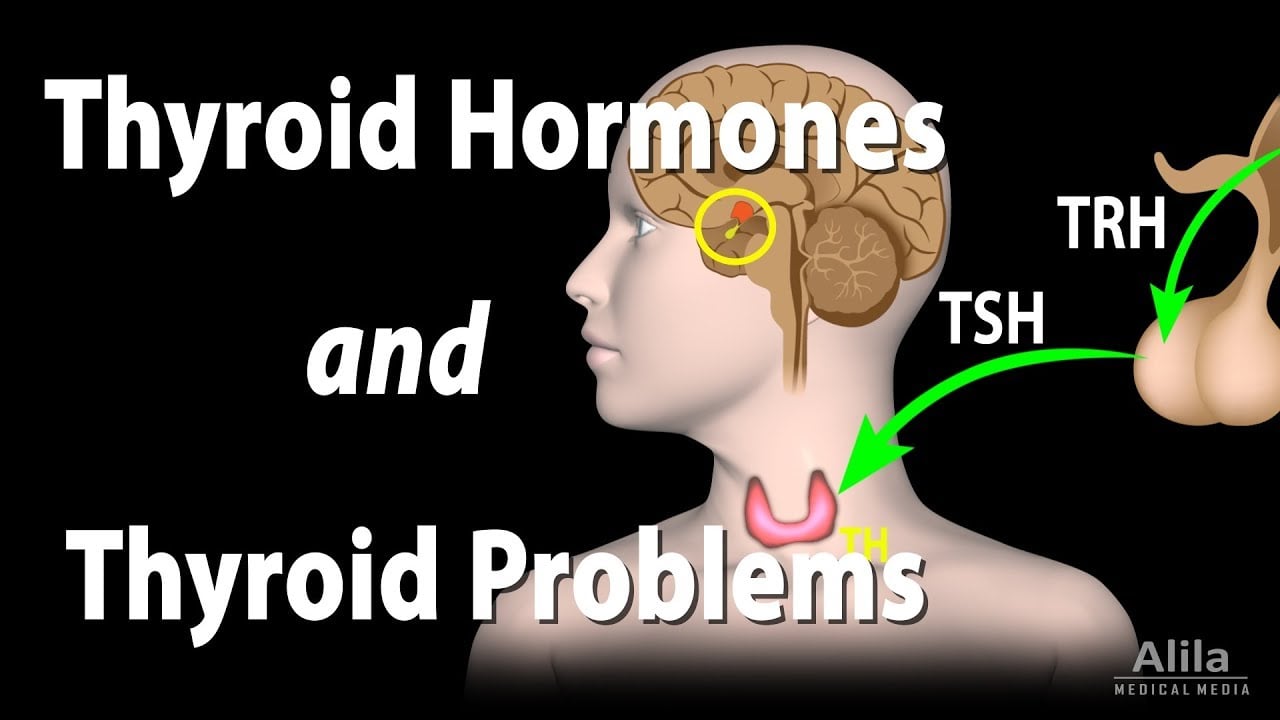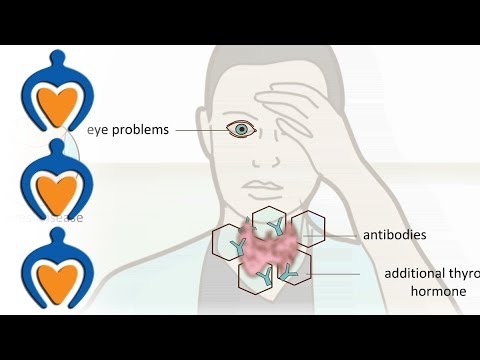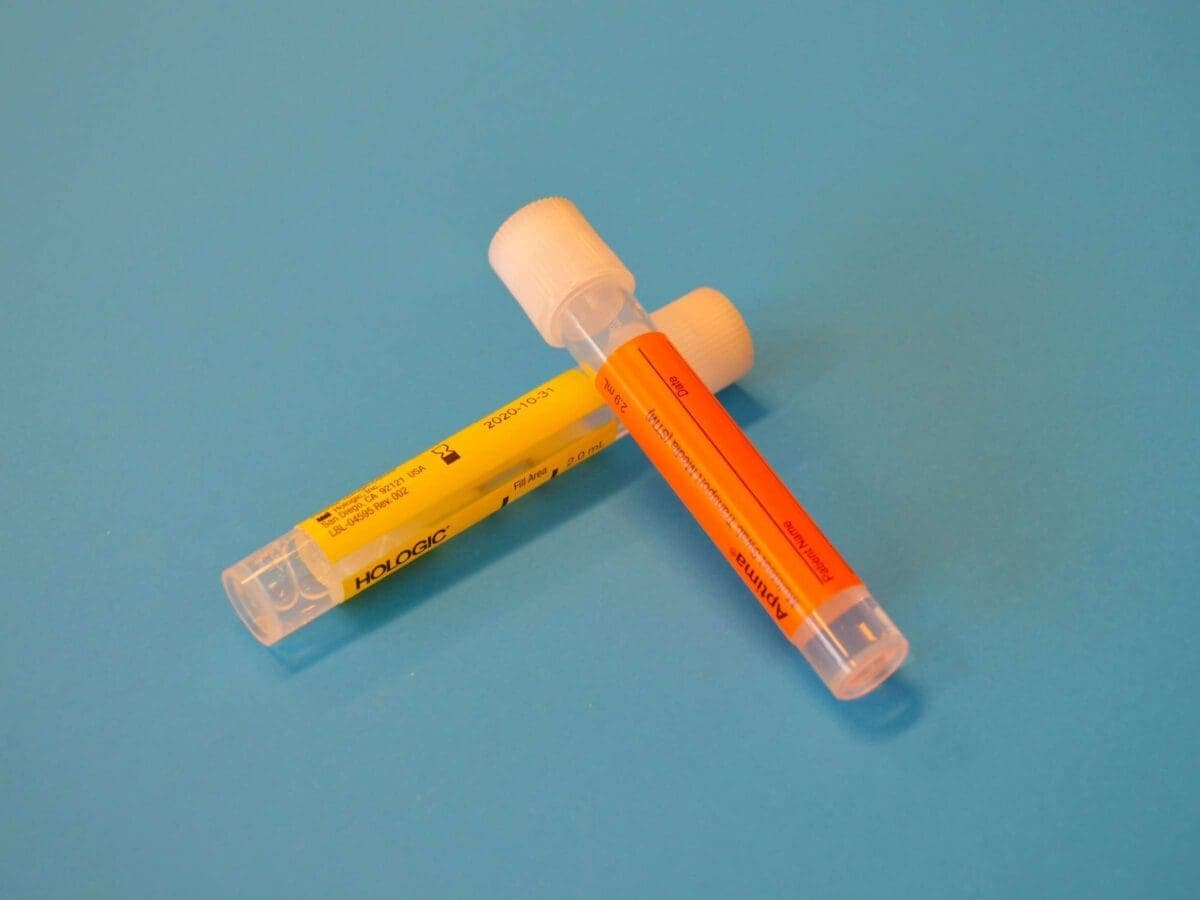Table of Contents Show
What are the best foods to heal the thyroid and deal with your thyroid problem naturally?
A thyroid-friendly diet might be the answer to your thyroid problems and make thyroid healing1 easier and more effective to a large extent.
According to the American Thyroid Association, millions of people suffer from thyroid. For these people, it is a never-ending struggle with depression, fatigue, infertility, and weight gain.
Many opt for medical treatment after diagnosis and a balanced diet after checking the best foods to heal the thyroid and holistically resolve their thyroid issues.
A thyroid condition is mostly an autoimmune disease2, and because of this, the healthy cells in the body are attacked. It is believed several patients who have thyroid also get Celiac disease.
Hence, screening patients with thyroid disorder for Celiac disease is recommended.
What is Thyroid Hormone?
Before you move to the topic of what are the best foods to heal the thyroid, let us have some insights into what thyroid hormone is and thyroid gland function.
The thyroid is one of the hardworking organs3 in the human body, and this butterfly-shaped gland in the neck plays an active part in your metabolism and immune system. It is located at the front of the neck and below your Adam’s Apple.
The effective function of every cell in the body depends on thyroid hormones, and all thyroid disorders can be treated if diagnosed early. Sometimes your own body creates antibodies that might attack your thyroid accidentally and cause thyroid condition.
Symptoms of Having Thyroid
What are the best foods to eat to heal the thyroid? Before we get into that, let us look at some of the common thyroid symptoms.
-
Anxiety

The thyroid can cause energy and mood fluctuations. People with hyperthyroidism4 experience anxiety and irritability; if you have hypothyroidism, fatigue and feeling sluggish are some of the symptoms.
-
Constipation
If you are experiencing problems in bowel movements constantly, it is better to get your thyroid gland checked. An underactive thyroid gland does not produce thyroid hormones required for a healthy digestive system which can result in constipation.
-
Depression
Though it has not been proven, hypothyroidism causes depression in male and female patients. It can be connected to low energy and feeling tired all the time. Studies show thyroid hormone replacement therapy 5has improved depression in patients with mild hypothyroidism.
-
Dry skin

Skin cells are also affected if there is an insufficient thyroid hormone. Studies show that 74% of people without enough thyroid hormones have dry and itchy skin. It should also be noted that people with dry skin need not have thyroid problems; it can also be associated with many other factors.
-
Excessive Weight Gain/Weight Loss
If the thyroid gland in the body is not functioning properly, then there can either be a weight gain or a weight loss. An excessive amount of thyroid hormones can lead to hyperthyroidism; in this case, you tend to lose weight. A lack of required thyroid hormones can lead to hypothyroidism, in which you gain weight.
-
Feeling Cold
Thyroid symptoms mean your thyroid function is improper, and it is best to get medically reviewed and take thyroid medication if required. If the thyroid function is improper, you might feel cold almost always.
-
Hair-fall
Hypothyroid patients and patients with hyperthyroidism often have hair loss as one of the symptoms. It means your thyroid hormones, TSH, T-three, and T-four, are not functioning properly as they should be.
-
Irregular periods
The menstrual cycle becomes irregular if thyroid hormone production is not normal. If you have been diagnosed with thyroid, it is better to watch your menstrual cycle.
-
Joint Aches and Muscle Pain
The thyroid gland controls the metabolism of the body. If you are experiencing continuous aches and pains, checking your thyroid function and taking thyroid medication if required will be better,
-
High Cholesterol Levels

If your body does not have a normal thyroid function, there are all chances your cholesterol levels might go up. High cholesterol can cause cardiovascular diseases, so it is better to get medically reviewed periodically for your cholesterol levels.
-
Rapid Heart Rate
Every organ in the body is affected if your thyroid gland does not function properly. In hypothyroidism, your heartbeat will be slower than normal, and in hyperthyroid patients, the heartbeat might be faster. It can result in high blood pressure and heart palpitations.
-
Swelling in the Neck
One of the noticeable signs that you have thyroid is an enlargement or swelling in the neck area. The swelling can also be something unrelated to your thyroid gland.
-
Tiredness
In thyroid disease, your body produces more or lacks essentialized thyroid hormones. In these cases, the body requires more energy to function properly, and there are chances you might get tired quickly. It is better to get medically reviewed if you are feeling tired all the time and check if your thyroid function is normal.
Thyroid symptoms vary from person to person, but it is always better to get medically reviewed if you are constantly experiencing any of the above symptoms.
Go for a healthy diet, or take your thyroid medications if the doctor recommends. Eat iodine-rich foods, maintain a healthy weight, and follow a good routine to have a healthy thyroid.
Different Types of Thyroid Disorders
Different thyroid disorders can cause thyroid disorders that can disturb your thyroid function and cause changes in your body temperature.
Thyroid-related problems are on the rise, and let us look at the disorders to be educated about the thyroid’s ability to control the functions in the human body.
Grave’s Disease
This autoimmune disorder causes an overproduction of thyroid hormones and is one of the common causes of hypothyroidism. Grave’s Disease can be treated with medicines, iodine therapy, or surgery.
Goiter
When you have an abnormally enlarged thyroid gland, then it is called Goiter6. The most common cause is iodine deficiency. Sometimes there can be no change in the thyroid function, and some complications might require treatment.
Hashimoto’s Thyroiditis (Hashimoto’s disease)
Hashimoto’s disease is one of the most common reasons for hypothyroidism7 and is also called chronic lymphocytic thyroiditis8. This autoimmune disorder can be seen mostly in middle-aged women and children.
Hypothyroidism
Hypothyroidism is one of the most common forms of thyroid9 seen in people. This happens when the thyroid gland stops making the hormones. This occurs because of an autoimmune disorder called Hashimoto’s thyroiditis which causes the thyroid gland to stop functioning.
Symptoms of hypothyroidism are weight gain, constipation, fatigue, and dry skin. Treatment usually replaces the body’s hormones using medication that must be taken daily all your life.
Hyperthyroidism
An overactive thyroid that makes too much of hormones is called hypothyroidism. This is usually caused by an autoimmune disease called Grave’s Disease. Symptoms of hypothyroid patients are weight loss, sweating, diarrhea, rapid heart rate, and nervousness.
Pituitary Hypothyroidism
There is a connection between the pituitary gland and the thyroid, and in this condition, the pituitary gland can have low levels of TSH, T3, and T4 hormones.
Pituitary Hypothyroidism, or Central Hypothyroidism 10as it is known, can affect the pituitary gland and cause many complications in the body because it controls all the glands and many other processes.
What Are the Best Foods to Heal the Thyroid?
A good diet can effectively support thyroid health, and there are foods to eat that can help with your thyroid hormone levels. People with thyroid should avoid highly processed foods because most of these processed foods contain a high level of sodium which is detrimental to thyroid diseases.
Too much iodine in your diet is also not good because it can cause an increase in thyroid antibodies. Make sure your protein intake has the right iodine levels because excess iodine levels in the body are also not good.
-
Apple
If you are looking for the best foods to heal the thyroid, then apples are one of them. Like oranges and pears, apples have pectins in them and are also rich in vitamins.
Eating 2-3 apples daily will help absorb kinds of heavy metals in the body, especially mercury which can affect thyroid function.
-
Berries
Berries are low in fat and have a lower glycemic index, which is good for controlling the insulin in your body.
Berries like strawberries, raspberries, blueberries, etc., are rich in antioxidants that are good for keeping your thyroid healthy and killing the harmful free radicals in the body.
-
Brazil Nuts
Brazil Nuts are a good choice if you want to know the best foods to heal the thyroid, mainly because it is rich in selenium which plays a good part in promoting a healthy thyroid function.
Selenium balances your thyroid function, and it will be ideal for including these nuts as your healthy snacks. Limit your intake to 1-3 nuts a day because too much selenium is also not good for your body.
-
Chicken and Beef
Zinc is one of the essential minerals your body requires, and chicken and beef are rich in zinc. It keeps your thyroid healthy, and you can get a decent amount of zinc through your foods.
-
Citrus fruits
Citrus fruits, oranges, and lemons have an abundance of pectin11, which helps detoxify the mercury. This is one of the metals connected to thyroid problems, and including these fruits in your diet can contribute to a healthy thyroid function.
-
Eggs
Magnesium, manganese, and zinc are the vitamins found in eggs, and these vitamins are necessary for good thyroid function and health.
Eggs are a good source of iodine and selenium and are one of the important foods that come under what are the best foods to heal the thyroid.
-
Fish
Sardines and salmon fish are packed with healthy fats and high-level nutrients. Sardines and salmon have a high level of iodine content which is good for a healthy thyroid.
This can be another addition to the list of what are the best foods to heal the thyroid.

Copyrights 2020
-
Green Tea
Green tea is said to be healthy for thyroid patients unless consumed in quantities that can prove bad. It is a healthy beverage rich in amino acids, calcium, magnesium, copper, and iron. The catechins in green tea have a lot of health benefits.
-
Iodized Salt
Iodized salt plays a key role in the production of thyroid hormones. Foods containing good iodine content are one of the best ways to get iodine in your body.
Consume iodized table salt in your food daily, but ensure you have the right quantity.

Copyrights 2021
-
Pumpkin Seeds
Pumpkin seeds are good for thyroid health as they are rich in zinc and required for synthesizing thyroid hormones. Zinc deficiency can cause hypothyroidism. Add pumpkin seeds to your diet.
-
Spinach
Leafy vegetable lunch is good, but spinach is the best to be included in the best foods to heal the thyroid. Spinach has a lot of zinc content, one of the causes of hypothyroidism.

Copyrights 2019
-
Sea Weed
Your thyroid needs iodine to function properly and run the body well. Seaweeds are rich in iodine; if there is an iodine deficiency in the body, you are at risk of hypothyroidism.
Too much iodine is also harmful; hence the intake of seaweed in your diet should not be too much.
-
Whole Grains
Try to include oats, quinoa, brown rice, and grain bread in your diet. Since the body uses more energy to digest whole grains, your metabolism rate is always high, which helps your thyroid gland.
-
Yogurt
Yogurt has Vitamin D, which is good for the immune system and every spoon of yogurt helps your thyroid. Vitamin D deficiency increases the risk of Hashimoto’s disease.
The probiotics in yogurt balance the good bacteria in your gut.

Copyrights 2019
You should know diet alone cannot cure or cause thyroid, though a good thyroid diet will be helpful. A gluten-free diet can cure thyroid, or you have to skip having cruciferous vegetables if you have thyroid are all myths and misconceptions surrounding the thyroid diet.
It is always better to consult your doctor before choosing a gluten-free diet or avoiding cruciferous vegetables from your diet completely. A healthy diet will be beneficial to staying healthy always.
In The End
Along with what are the best foods to heal the thyroid, exercising is also good for boosting thyroid function. You can go for a medium-intensity aerobic exercise daily instead of a high-intensity one because they are good for your thyroid health.
By now, you must have gotten an idea about thyroid, thyroid types, symptoms, and what are the best foods to heal the thyroid. The above foods are good for rectifying the iodine deficiency in your body and will.
They will overcome the problems caused by an underactive thyroid to some extent, so you need not always take iodine supplements.
FAQs
- You can improve thyroid function by naturally increasing thyroid hormone production through exercise, diet plans consisting of foods high in iodine, selenium, and probiotics, as well as proper stress management. Consistently doing these steps helps lower your risks for hypothyroidism.
- It turns out they can. While eating certain foods and maintaining an exercise regimen won’t cure hypothyroidism or suffice as treatment, smart diet and lifestyle choices can help.
- Milk, cheese, and yoghurt are very beneficial for the thyroid as they are high in iodine, the mineral that is essential for proper thyroid functioning. Consuming dairy products will also help with increasing vitamin levels which in turn will help with thyroid problems.
In case you liked this article, here is something more.
- Safer, Joshua D. “Thyroid hormone and wound healing.” Journal of thyroid research 2013 (2013). ↩︎
- Davidson, Anne, and Betty Diamond. “Autoimmune diseases.” New England Journal of Medicine 345.5 (2001): 340-350. ↩︎
- Whereat, Arthur F. “Recent advances in experimental and molecular pathology: Atherosclerosis and metabolic disorder in the arterial wall.” Experimental and Molecular Pathology 7.2 (1967): 233-247. ↩︎
- Franklyn, Jayne A. “The management of hyperthyroidism.” New England Journal of Medicine 330.24 (1994): 1731-1738. ↩︎
- Wiersinga, Wilmar M. “Thyroid hormone replacement therapy.” Hormone research 56.Suppl. 1 (2002): 74-81. ↩︎
- Hegedus, Laszlo, Steen J. Bonnema, and Finn N. Bennedbæk. “Management of simple nodular goiter: current status and future perspectives.” Endocrine reviews 24.1 (2003): 102-132. ↩︎
- Chiovato, Luca, Flavia Magri, and Allan Carlé. “Hypothyroidism in context: where we’ve been and where we’re going.” Advances in therapy 36 (2019): 47-58. ↩︎
- Holm, Lars-Erik, Henric Blomgren, and Torsten Löwhagen. “Cancer risks in patients with chronic lymphocytic thyroiditis.” New England Journal of Medicine 312.10 (1985): 601-604. ↩︎
- Lazar, Mitchell A. “Thyroid hormone receptors: multiple forms, multiple possibilities.” Endocrine reviews 14.2 (1993): 184-193. ↩︎
- Persani, Luca. “Central hypothyroidism: pathogenic, diagnostic, and therapeutic challenges.” The Journal of Clinical Endocrinology & Metabolism 97.9 (2012): 3068-3078. ↩︎
- Mohnen, Debra. “Pectin structure and biosynthesis.” Current opinion in plant biology 11.3 (2008): 266-277. ↩︎
Last Updated on by Sathi Chakraborty, MSc Biology









